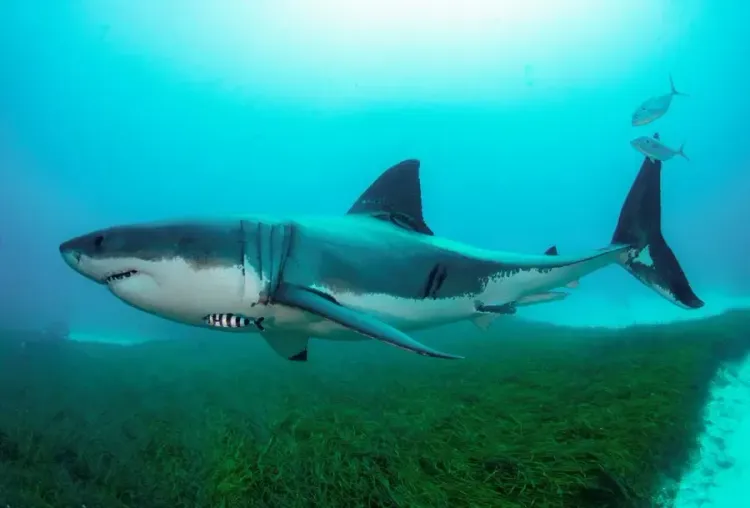Was a surfer fatally attacked by a shark at a Sydney beach?

Synopsis
Key Takeaways
- Surfer's death: A tragic incident occurred at Long Reef Beach.
- Emergency response: Authorities were quick to respond but could not save him.
- Investigation ongoing: Experts are assessing the shark species involved.
- Beaches closed: Long Reef Beach and surrounding areas are temporarily closed.
- Research on prevention: New strategies for shark bite prevention are being developed.
Sydney, Sep 6 (NationPress) A tragic incident occurred at a beach in northern Sydney on Saturday morning, where a surfer lost his life following a shark attack.
According to a police statement, emergency services responded to reports of a man sustaining critical injuries at Long Reef Beach, located 16 km northeast of central Sydney, shortly after 10 a.m. on Saturday.
The man was pulled from the water and transported to shore, but unfortunately, he died at the scene, as reported by Xinhua news agency.
Authorities indicated that the victim was bitten by what is presumed to be a large shark.
Two segments of a surfboard were recovered from the area and are currently under examination.
Experts will be consulted to identify the species of the shark involved in this tragic event.
Long Reef Beach, along with nearby beaches, has been closed until further notice.
Earlier this June, a teenager experienced a shark attack while swimming at a beach on Australia’s east coast.
The 16-year-old boy was at Cabarita Beach, over 650 km north of Sydney in the state of New South Wales (NSW), on June 29, when he was bitten on his right arm and leg.
In response to rising public concern regarding shark encounters, Australian researchers have formulated a new framework aimed at enhancing shark bite prevention.
The study compares both modern and traditional techniques to develop effective solutions for the variable surf conditions present at Queensland's Gold Coast, as indicated by a statement from Flinders University in South Australia.
Researchers from Flinders University, in collaboration with the University of Queensland and state agencies, are evaluating 15 different shark bite prevention strategies based on 12 criteria, assessing their effectiveness alongside social, economic, and environmental impacts.
The study, published in the journal People and Nature under the British Ecological Society, examines lethal methods such as nets and drumlines against non-lethal alternatives, including drones, SMART drumlines, sonar, and electronic deterrents.
A SMART (Shark-Management-Alert-in-Real-Time) drumline is a shark mitigation tool that utilizes a baited hook and satellite alerts to inform authorities in real-time when a shark is caught, aiming to minimize harm to marine life while keeping track of shark activity near beaches, according to government officials.
The study concludes that no single solution is effective across all environments, advocating for a combined strategy involving public education, behavioral changes, and coordinated efforts.









